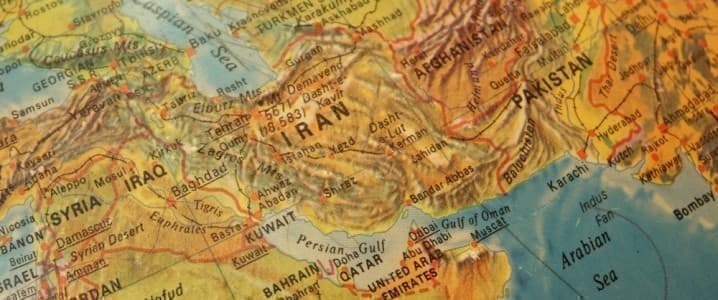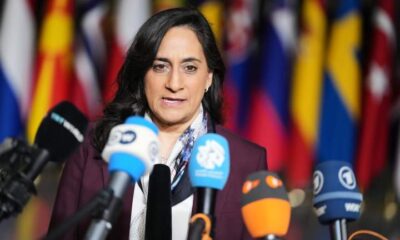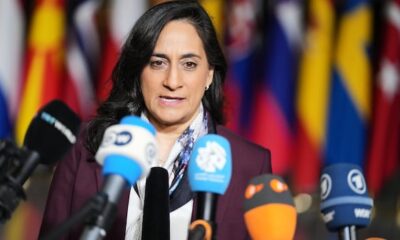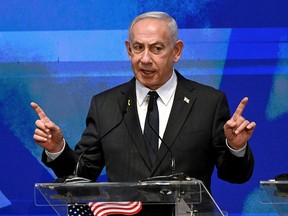Business
E3 Triggers Snapback Mechanism as Iran Nuclear Deal Faces Crisis

Britain, France, and Germany, collectively known as the E3, have activated the snapback mechanism of the 2015 Iran nuclear deal, formally called the Joint Comprehensive Plan of Action (JCPOA). This decision, communicated to the United Nations Security Council on August 28, 2023, initiates a 30-day period that could lead to the reinstatement of UN sanctions against Tehran.
The foreign ministers of the E3 emphasized their commitment to diplomatic efforts, stating, “We will use the 30-day period to continue engaging with Iran regarding our extension offer or any meaningful diplomatic efforts to restore its compliance with commitments.” They reiterated a shared goal: Iran must never seek, acquire, or develop a nuclear weapon.
This significant move places Iran at risk of facing renewed sanctions that were lifted as part of the JCPOA. In response, US Secretary of State Marco Rubio expressed support for the E3’s action, highlighting that the United States remains open to direct engagement with Iran. He remarked, “Snapback does not contradict our earnest readiness for diplomacy; it only enhances it.”
Iran’s government has condemned the E3’s decision, labelling it a “provocative and unnecessary escalation.” The Iranian Foreign Ministry criticized the move, asserting it would severely undermine the ongoing cooperation with the International Atomic Energy Agency (IAEA). Foreign Minister Abbas Aragchi described the snapback mechanism as “baseless and unlawful,” indicating that Tehran would respond to what it views as an “unjustified action.”
Despite the strong condemnation, Aragchi later adopted a more conciliatory tone in correspondence with EU foreign policy chief Kaja Kallas. He expressed Iran’s readiness to resume “fair and balanced diplomatic negotiations,” contingent upon goodwill from the other parties involved. He stated, “Iran’s readiness to resume fair negotiations depends on the seriousness and goodwill shown by the other parties.”
The situation remains fluid as the UN has urged Iran and world powers to expedite negotiations for a new nuclear agreement before snapback sanctions take effect. Stephane Dujarric, spokesman for UN Secretary-General Antonio Guterres, noted, “In the next 30 days, there is a window of opportunity to avoid further escalation and find a way forward that serves peace.”
Once the snapback process is complete, the JCPOA, which was intended to prevent Iran from developing nuclear weapons, would effectively collapse. The deal included strict regulations for monitoring Iran’s nuclear activities and imposed limits on uranium possession and enrichment levels. However, Iran has progressively rolled back its commitments following the United States’ withdrawal from the deal in 2018 and the reimposition of sanctions.
Currently, Iran enriches uranium to a purity level of 60 percent, exceeding the 3.67 percent cap established by the JCPOA. Furthermore, Tehran suspended cooperation with the IAEA in July, responding to US and Israeli attacks on key nuclear sites in Fordow, Isfahan, and Natanz.
One of the conditions set by the E3 to defer the snapback mechanism was for Iran to resume full cooperation with the UN nuclear watchdog before the end of August. As negotiations continue, the potential for renewed sanctions looms large, raising critical questions about the future of Iran’s nuclear program and international relations in the region.
-

 Politics4 weeks ago
Politics4 weeks agoSecwepemc First Nation Seeks Aboriginal Title Over Kamloops Area
-

 World5 months ago
World5 months agoScientists Unearth Ancient Antarctic Ice to Unlock Climate Secrets
-

 Entertainment5 months ago
Entertainment5 months agoTrump and McCormick to Announce $70 Billion Energy Investments
-

 Science5 months ago
Science5 months agoFour Astronauts Return to Earth After International Space Station Mission
-

 Lifestyle5 months ago
Lifestyle5 months agoTransLink Launches Food Truck Program to Boost Revenue in Vancouver
-

 Technology3 months ago
Technology3 months agoApple Notes Enhances Functionality with Markdown Support in macOS 26
-

 Lifestyle3 months ago
Lifestyle3 months agoManitoba’s Burger Champion Shines Again Amid Dining Innovations
-

 Top Stories2 months ago
Top Stories2 months agoUrgent Update: Fatal Crash on Highway 99 Claims Life of Pitt Meadows Man
-

 Politics4 months ago
Politics4 months agoUkrainian Tennis Star Elina Svitolina Faces Death Threats Online
-

 Sports5 months ago
Sports5 months agoSearch Underway for Missing Hunter Amid Hokkaido Bear Emergency
-

 Politics5 months ago
Politics5 months agoCarney Engages First Nations Leaders at Development Law Summit
-

 Technology5 months ago
Technology5 months agoFrosthaven Launches Early Access on July 31, 2025





















